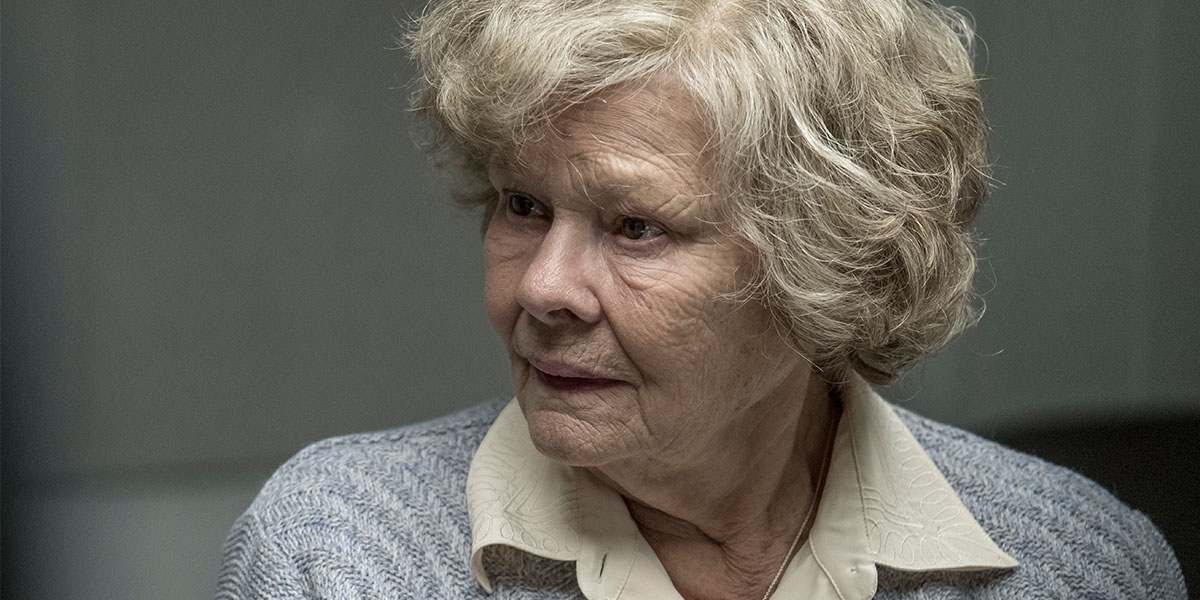Toronto Film Review: ‘Red Joan’
By Dennis Harvey
LOS ANGELES (Variety.com) – Trevor Nunn is not the first director to accrue both a glorious stage résumé and a paltry, pedestrian screen one. Still, given the talent involved, it’s disappointing that “Red Joan” does so little to change that — his first theatrical feature since a decent “Twelfth Night” adaptation 22 years ago is a would-be sweeping epic that instead turns out tweedy, dreary, and unconvincing.
Something was surely lost along the way as the real-life story of one Melita Norwood — a British civil servant of scant note until her pro-USSR espionage was revealed when she was an elderly retiree — turned into a 2014 novel by Jessica Rooney, then into this tepid film incarnation. Beyond all other intrigue, our heroine here proves an under-radar key player in shaping the power dynamics of the Cold War. So it’s dismaying that so little drama is wrung out of the tale, and that what we get too often feels like a cliché-riddled romantic pulp.
You can’t fault Judi Dench or Sophie Cookson’s performances as the protagonist in late and early adulthood, respectively. But what had potential to strike a middle ground between “Hidden Figures” and “Another Country” instead feels like an unwise resuscitation of a 1940s script that might’ve had Madeleine Carroll tempted into betraying king and country by the insidious wiles of James Mason. Actually, that movie would have been fun — this one doesn’t embrace the creaky melodrama it nonetheless succumbs to, resulting in something that feels old at birth, and not in a charmingly retro way.
In 2000 suburban London, octogenarian widow Joan Stanley (Dench) is surprised by a knock at the door — even more so when it turns out that she’s under arrest for treason. It seems the death of an erstwhile colleague has somehow exposed her suspicious activities of decades before. Interrogated by government representatives, she denies all guilt but relates her story in flashbacks.
Reading physics at Cambridge just before World War 2, young Joan (Cookson) was a studious, mousy thing dazzled by the glamour of immigrant classmate Sonya (Tereza Srbova), then swept off her feet by the latter’s dreamy cousin Leo (Tom Hughes). Both are Jewish refugees from Germany with roots in Russia, involved in anti-fascist activism and the Communist Party.
Though she’s not entirely sure about that Stalin fellow, Joan proves fairly easy to recruit, both to the Party and Leo’s bed. When war breaks out and she’s drafted to assist Professor Max Davies (Stephen Campbell Moore) on a top-secret British equivalent to the Manhattan Project, it doesn’t take long for her “comrades” to beg she leak some classified intel for the benefit of Mother Russia.
Eventually it becomes clear we’re meant to believe Joan’s actions rose out of private conviction — she thought Soviets also having “the bomb” would prevent the major post-war powers from annihilating each other. But that conscience isn’t made vivid enough in a film that till then had suggested our heroine was simply a fool for love, bowled over by Leo’s heavy-lidded seduction tactics. (James Mason could indeed have pulled off a bag of tricks that look vain and silly on too-pretty Tom Hughes.) It would require a whole lot of chemistry for this high-risk passion to persuade us. Alas, there’s nary a spark between these performers, nor between Cookson and Moore once that professional relationship gets personal.
Never mind that Lindsay Shapero’s screenplay keeps dropping unsubtle hints about how brilliant and unappreciated Joan is in a scientific boys’ club, denied credit even when she solves their problems for them. Somehow none of this seems convincing — without presumably meaning to, the movie renders its central character the kind of hapless pawn at which people used to dismissively cluck the words, “Silly woman!” Dench, whose scenes are nearly all in one room, can’t make much more of Senior Joan than a bewildered old lady whose beliefs remain as frustratingly vague as they did half a century earlier.
“Red Joan” is uninspired on all levels, with credible-enough period atmosphere but little in the way of style or scale to give this oddly flat tale — odd because it involves sex, spying, scandal, and death, none of which bring excitement here — an aesthetic lift. The most you can say about the film’s look and George Fenton’s original score are that they are conventionally workmanlike.
The source novel appears to have taken considerable fictive liberties with Melita Norwood’s actual history. One suspects the latter might still make a good film one day, and that this one won’t be remembered long enough to provide an obstacle.

